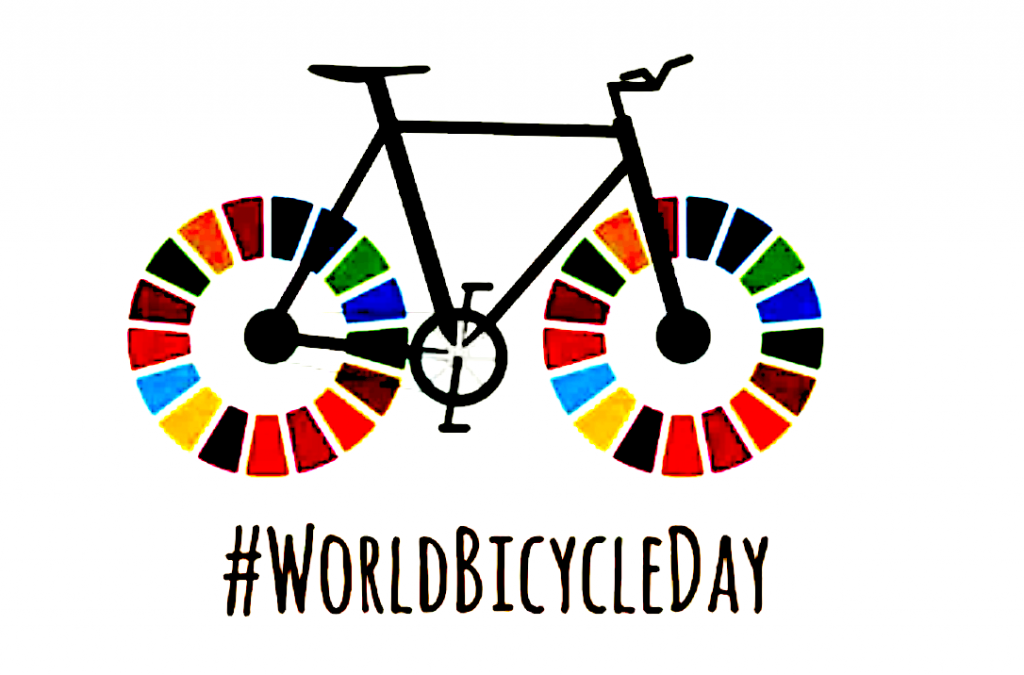June 3, 2024 - World Bicycle Day celebrates the critical role bicycles play in fostering sustainable development around the world. Formally adopted by the United Nations in 2018, World Bicycle Day is celebrated on June 3 in over 80 countries around the world to promote the use of bicycles for transportation, recreation and environmental conservation.

“The bicycle can serve as a tool for development and as a means not just of transportation but also of access to education and healthcare. The potential of the bicycle to contribute to the achievement of the internationally agreed development goals, including the Sustainable Development Goals and targets of the 2030 Agenda,” states the UN’s 2018 resolution.
Why celebrate the bicycle?
Regular physical activity of moderate intensity – such as walking, cycling, or doing sports – has significant benefits for health. At all ages, the benefits of being physically active outweigh potential harm, for example through accidents. Some physical activity is better than none. By becoming more active throughout the day in relatively simple ways, people can quite easily achieve the recommended activity levels.
According to the World Health Organization (WHO), safe infrastructure for walking and cycling is also a pathway for achieving greater health equity. For the poorest urban sector, who often cannot afford private vehicles, walking and cycling can provide a form of transport while reducing the risk of heart disease, stroke, certain cancers, diabetes, and even death. Accordingly, improved active transport is not only healthy; it is also equitable and cost-effective.
Meeting the needs of people who walk and cycle continues to be a critical part of the mobility solution for helping cities de-couple population growth from increased emissions, and to improve air quality and road safety. The COVID-19 pandemic has also led many cities to rethink their transport systems.

Cycling and sustainable development
World Bicycle Day draws attention to the benefits of using the bicycle — a simple, affordable, clean and environmentally fit sustainable means of transportation. The bicycle contributes to cleaner air and less congestion and makes education, health care and other social services more accessible to the most vulnerable populations. A sustainable transport system that promotes economic growth, reduces inequalities while bolstering the fight against climate change is critical to achieving the Sustainable Development Goals.
On 15 March 2022, the General Assembly adopted the resolution on integration of mainstream bicycling into public transportation systems for sustainable development. It emphasized that the bicycle is an instrument of sustainable transportation and conveys a positive message to foster sustainable consumption and production, and has a positive impact on climate.
Background
Acknowledging the uniqueness, longevity and versatility of the bicycle, which has been in use for two centuries, and that it is a simple, affordable, reliable, clean and environmentally fit sustainable means of transportation, fostering environmental stewardship and health, the General Assembly decided to declare 3 June World Bicycle Day.
It encouraged stakeholders to emphasize and advance the use of the bicycle as a means of fostering sustainable development, strengthening education, including physical education, for children and young people, promoting health, preventing disease, promoting tolerance, mutual understanding and respect and facilitating social inclusion and a culture of peace.
The Assembly welcomed initiatives to organize bicycle rides at the national and local levels as a means of strengthening physical and mental health and well-being and developing a culture of cycling in society.
Read more here.
















